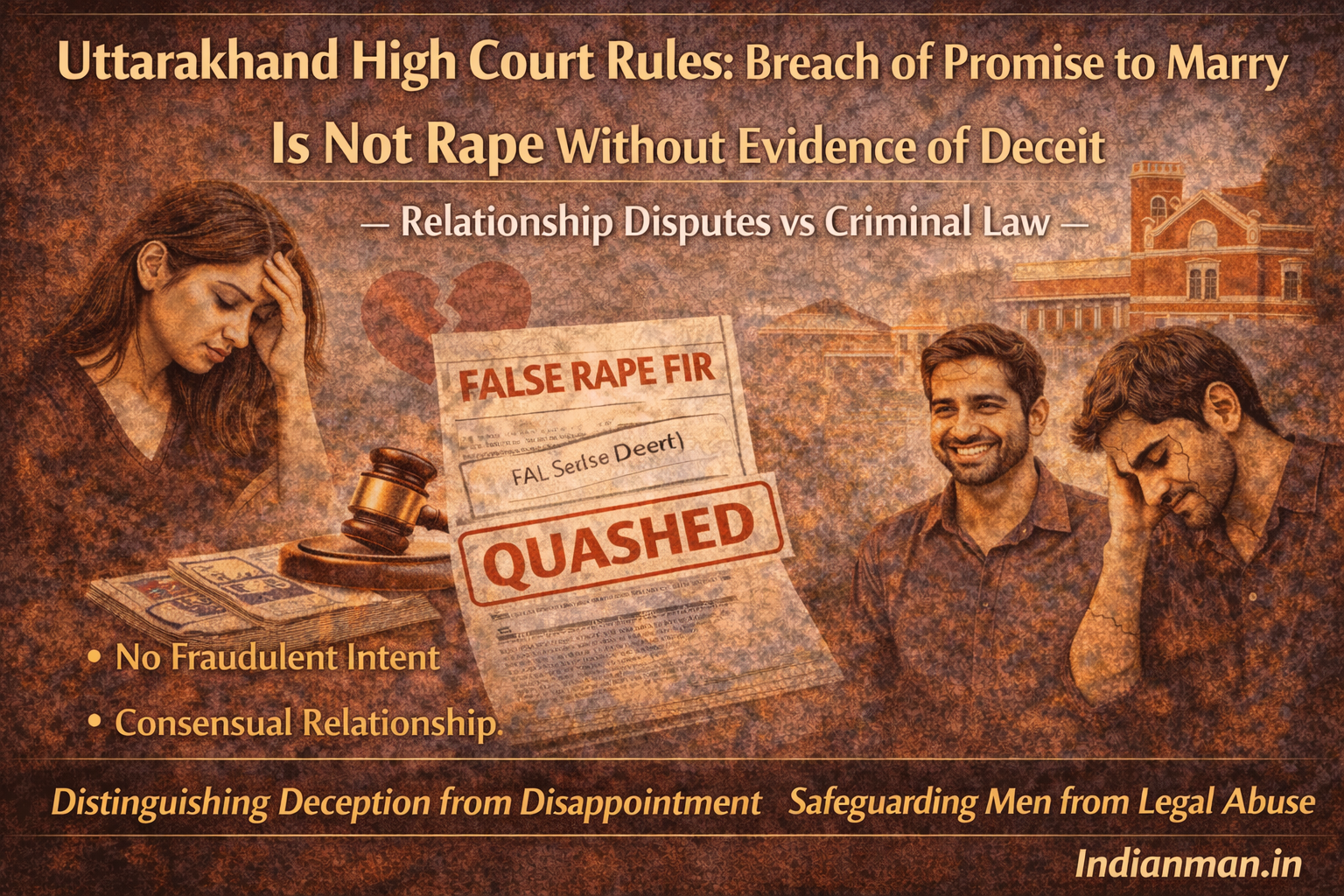Bombay High Court Quashes Rape FIR Based on False Marriage Promise
The Bombay High Court recently quashed an FIR and chargesheet against an individual accused of rape based on a false promise of marriage. The court ruled that the victim had enough intelligence to understand the morality of the act and had consented to the relationship.
Case Background
The court was hearing an appeal to quash an FIR and chargesheet filed under Section 376(2)(n) of the Indian Penal Code and Sections 3(1)(w)(i), 3(1)(w)(ii), and 3(2)(va) of the Scheduled Caste and Scheduled Tribe (Prevention of Atrocities) Act, 1989. The bench, comprising Justices Vinay Joshi and Vrushali V. Joshi, made significant observations during the hearing.
Court’s Observations
The court noted that the victim was a mature engineering student who understood the significance and moral quality of the act. She consented to the relationship, and both parties initially intended to marry. Families from both sides were involved in marriage discussions for the first two years, indicating no deceitful intent from the applicant.
Prosecution’s Case
The prosecution argued that the applicant had committed sexual intercourse against the victim’s will by falsely promising marriage. According to the prosecution, the consent obtained under this misconception amounted to rape.
Supreme Court Precedent
The court referenced the Supreme Court’s decision in Pramod Suryabhan Pawar vs. State of Maharashtra (2019) 9 SCC 608. The judgment clarified that consent involving an active and reasoned deliberation could be vitiated by a false promise of marriage if the promise was made in bad faith with no intention to be honored.
Court’s Conclusion
The Bombay High Court concluded that the applicant did not act with deceitful intent. The relationship was open, with both parties regularly meeting, traveling together, and staying at each other’s homes over five years. The applicant’s family was also involved in marriage discussions, further indicating no fraudulent intent.
The court also considered the applicant’s claim of being harassed by the victim, which led him to file a police report expressing concerns about false accusations.
Final Judgment
The court ruled that there was no prima facie case of obtaining consent through a false promise of marriage. Consequently, the court quashed the FIR and set aside the chargesheet, allowing the application.
Conclusion
This case highlights the importance of understanding the context and intent behind promises of marriage in legal judgments related to consent. The Bombay High Court’s decision underscores that consent must be evaluated based on the entirety of the relationship and the actions of both parties involved.




